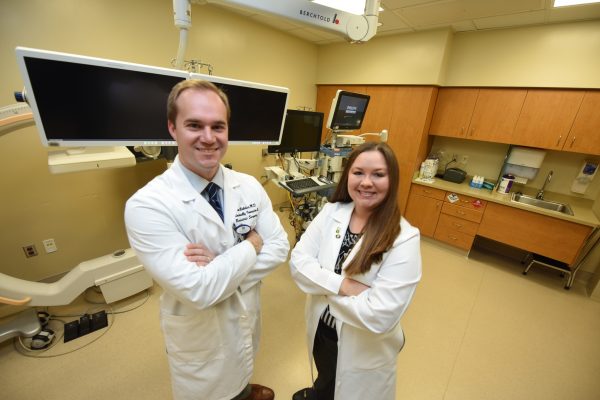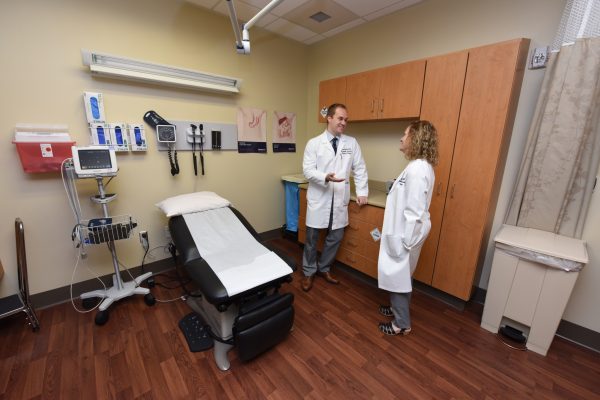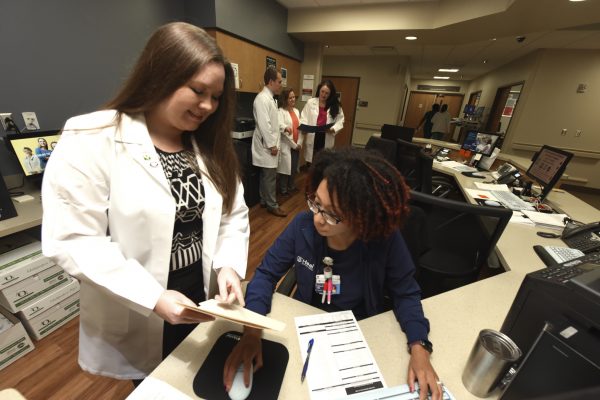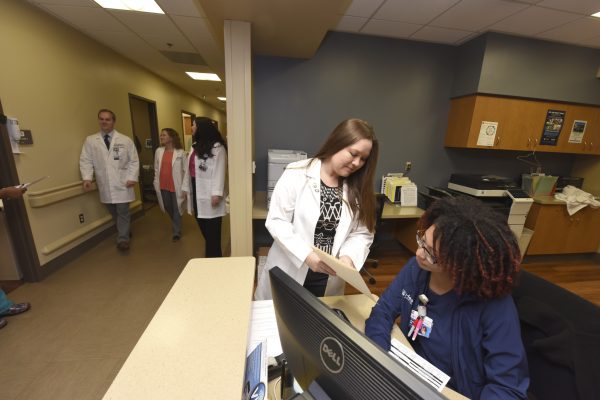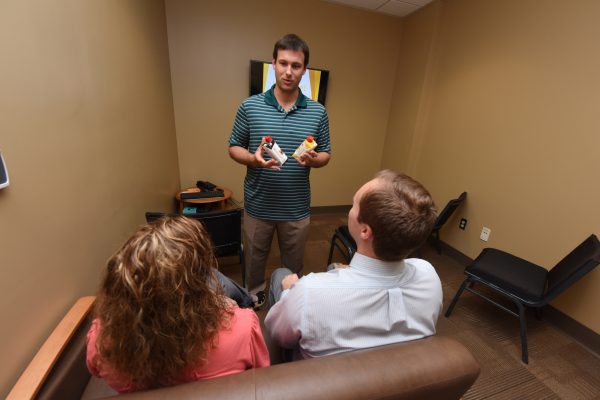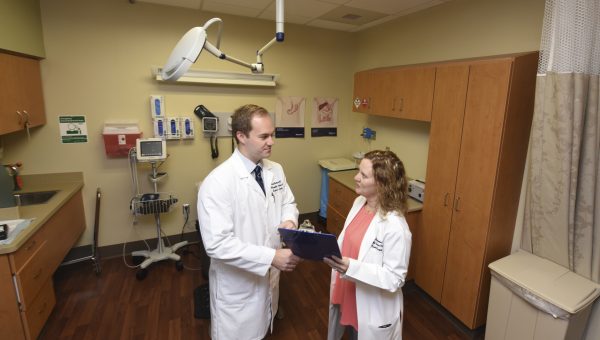The task of weight management can be tough to take on alone. For the many individuals struggling with their weight, or even to the point of obesity, the impact to their overall health is not always so obvious. Obesity, in particular, is a complex condition, requiring a diverse team of specialists to support patients before, during and after treatment. The team of highly skilled professionals at Augusta University’s Digestive Health Center work together with a comprehensive, multidisciplinary approach to offer a wide range of services for weight loss and nutrition.
“Many of our patients have metabolic syndrome, which makes losing weight difficult,” says Dr. Renee Hilton, director of bariatric and metabolic surgery at the Digestive Health Center. “Some have multiple, chronic health conditions caused by being overweight. Others need treatment, such as joint replacement or organ transplant, which cannot be performed until they lose significant weight.”
To address this range of issues, the center holds one of the largest and most diverse groups of specialists in the region, comprised of professionals with intensive training in bariatrics, the field of medicine related to obesity. It also includes two physicians who are fellowship-trained in bariatric surgery, a coordinator, registered nurses, nurse practitioner, registered dietitians and a psychologist.
Nutrition from start to finish
“What we offer here is unique,” Dr. Hilton says. “All of my colleagues and testing facilities are literally right next door to my office. That makes it very easy for us to discuss patient treatments, needs and challenges. This is an ideal approach to care.”
The center has other key distinctions. It is home to one of the state’s only comprehensive bariatric programs for adolescents. Specialists with the center’s transplant program are on-site, to help patients with weight loss before and after an organ transplant. The team also treats patients with reflux disease, adrenal cancer, gallbladder and hernia conditions and other gastrointestinal conditions.
“Our entire group meets regularly to discuss the different needs of our patients before surgery and afterward,” says Dr. Aaron Bolduc, a bariatric surgeon at the Digestive Health Center.
Other specialists and subspecialists are always nearby, backed by the region’s only academic health center, Augusta University Health.
“Our patients’ successes are the culmination of teamwork between each patient and the entire staff,” Dr. Bolduc says. Health and lifestyle successes after bariatric weight loss surgery can be dramatic and almost immediate.
“Before surgery, some take as many as 20 medicines every day,” Dr. Hilton says. They often have high blood pressure and diabetes, as well as high cholesterol, migraines, joint pain and sleep apnea. “Between their weight and these health conditions, it can be very hard for them to do everyday activities, from walking to driving a car and even working.”
Weight lost, health gained
After surgery—sometimes immediately after—patients can see health improvements. Many no longer need insulin for diabetes, for example, just hours after the procedure. Others can cut the dose of their blood pressure medicine in half before they leave the hospital.
“Obesity affects every system of the body, and this surgery can benefit our patients from head to toe,” Dr. Bolduc says. “From research and experience, we understand the components for successful weight loss and apply them to every patient we see.”
So, when someone is ready to get help losing weight, the specialists at Augusta’s Digestive Health Center are ready to address every aspect of their health. Almost every weekday, on average, one new patient begins this process towards better health and a better quality of life. They soon find themselves returning to activities they used to enjoy and often starting new ones. In 2019, the bariatric program expects to engage with approximately 250 individuals.
“Even for patients with many health problems that make bariatric surgery more challenging,” Dr. Hilton says, “we are able to offer this procedure and the support they need. Not only for patients but for our team of specialists and our colleagues across the system, it’s very rewarding.”

